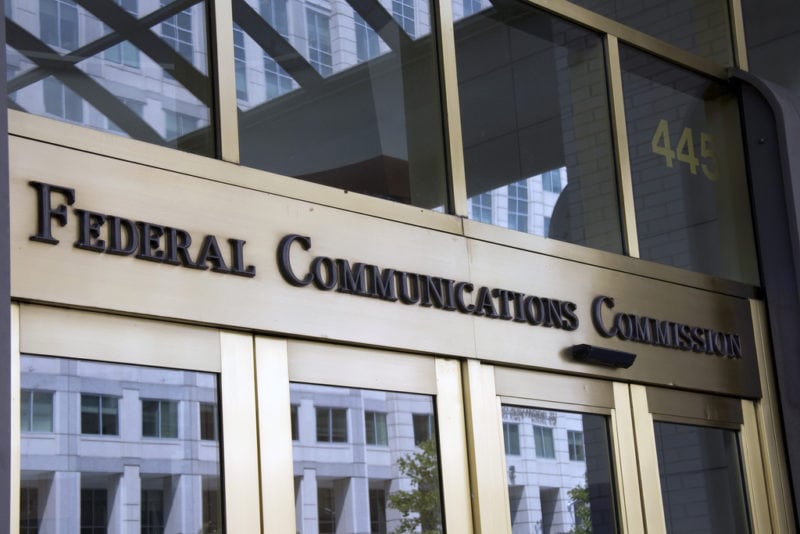Latest News

Federal Communications Commission. Photo: FCC
Last week was potentially a pivotal week for the U.S. satellite industry in regards to the future of C-band. FCC Commissioner Aji Pai proposed accelerated relocation payments for satellite operators that could total up to $9.7 billion as incentive to quickly clear part of the C-band spectrum for 5G purposes. Those payments, Pai said, would be paid by the winning bidders of a public C-band auction, who would also reimburse operators for relocation costs, which the FCC estimates at between $3 billion to $5 billion.
A number of major European investment bank analysts who cover SES and Eutelsat have written research reports on the developments, weighing in on the conversation. Paul Sidney, a satellite equity analyst at Credit Suisse, said in a research note that overall, Credit Suisse believes this FCC proposal strikes a balance between the high value of the C-band spectrum, the requirement of the satellite operators to cooperate in freeing up the spectrum in a timely manner, and ensuring the U.S. Treasury keeps the majority of the C-band auction proceeds.
He added, “Only last week, the U.S. Senate proposed a $1 billion cap on satellite net C-band incentivisation proceeds. We believe there will continue to be much noise and newsflow over the coming weeks, especially ahead of the FCC vote on February 28, but we believe this announcement is a positive for SES, especially with Intelsat publicly backing the proposal,” Sidney said.
Sidney believes that legal challenges to the FCC proposal could emerge in the coming months. “That said we view the FCC proposal as a significant step in the right direction and striking a compromise and setting a timeline which is consistent with the U.S. 5G plan to deploy the spectrum in a timely manner,” he said.
Sarah Simon, a satellite equity analyst at Berenberg also put out a research note on SES with her commentary on the latest developments in C-band. She said that after months of speculation, Berenberg can now say, with reasonable certainty, what C-band reallocation is worth to SES.
Commenting on the proposal of $9.7 billion in phased incentive payments, she said: “While considerably less than bulls had posited during this process, it is not a bad outcome considering that SES did not have anything to ‘sell,’ and given the declining nature of the revenues that it generates in the C-band.”
Simon says Berenberg finds these payments worth 5 euros per share to SES. She adds, “We have assumed, per SES management prior guidance, that the company will pay tax on the accelerated relocation payments, at a rate of 25%. After also adjusting for the fact that the money will be received at the end of 2021 and then the end of 2023, we estimate that these payments should be worth around 5 euros per SES share. This is significant, both relative to the current share price but also considered versus the fair value of SES without these payments: we estimate this as just over 11 euros per share.”
However, Simon admits there are a number of risks of jumping to conclusions.
She adds, “While it may be tempting to think we should just add the 5 euros to our core value, there are risks. There may be opposition to the amount of accelerated relocation payments (Senator [John] Kennedy has been vocal in this regard) and the FCC’s proposal may not pass. Equally, SES may not succeed in meeting the Phase II deadline, in which case it will not receive any money at all. We take a 25% haircut to our 5 euros to set a new price target of 14.9 euros. While this implies 20% upside, we believe that SES will have to lower guidance for 2020, and see the balance sheet as strained, given the significant spike in capex in 2021.”
Laurie Davison, a satellite equity analyst at Deutsche Bank also put out a research note. He said that the suggested financial incentive amount of $9.7 billion is 100% higher than its base-case of $5 billion incentive payment to satellite operators, which was based on last week’s reports.
“The financial incentive payment to incumbent satellite operators will be spread over three years, which is better than bullet payment at the end of the C-band migration,” he said.
Stay connected and get ahead with the leading source of industry intel!
Subscribe Now